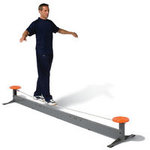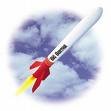Wings and volume a dangerous combination
Hi Andy,
Now I see why we are so different, apart from having wings, of course! 🙂🙂
I didn't know that you were in to volume :smart:
Split
Hi Split
newboy at price and volume for sure,
I re-read quite a lot of db"s work on it after he licked me in a debate about something,
😆I was pretty sceptical myself and had read it before.
Always noted eod volume and the win/lose split for the day, never used it live and it looked very confusing so buried my head in the sand on this one :whistling
I use it at the moment with my usual method Split and :-0 its good stuff imho, will probably never go price volume alone, but then we all take what we learn and do something slightly different with it, don"t we Split :?:
I did take a week off trading to just watch price with volume at my usual entry locations and manual S&R points in the small timeframes and was very happy to incorperate it in my usual method.
So far I have found it a very worthwhile addition, no bother at all all ++++++++ so....
🙂
good posts db, thanks for taking time to post them, appreciated
👍
Still look forward to licking you in a debate
😛, might be a bit off yet
😢
This Stop debate never ends,
😆 me I stick an HARD one 25 pts ftse for user error(news
😆) or machine down etc, I am gone as soon as I do not see what I like, usually about 8-14 pts. BSD stays till his is stop is hit, thats because as grant pointed out he is a stubborn ............ both seem to be ok judging by how everyone defends their position so..................
debate over
😆😆 its a draw, you pays your money you takes your chance
Split you win because you just say you have to have one, which is good advice, I would add no larger than 2.5 % away from entry, less if possible but then it depends on your SR :cheesy:
Good trading all next week :clover:
Lad won his footy match 3-0 :clap: cup match - next round the semi
Wings and a rocket, just in case I get tired
🙂



